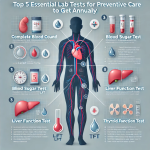
Age-related macular degeneration (AMD) is a common eye condition and a leading cause of vision loss among people age 50 and older. AMD affects the macula, the part of the eye that allows you to see fine detail. There are two types of AMD: “dry” and “wet.” The dry form is more common and generally less severe, but it can still lead to significant vision loss over time. Recent research suggests that daily supplements may slow the progression of the dry form of macular degeneration, offering hope to millions affected by this condition.
Understanding Macular Degeneration
Macular degeneration occurs when the central portion of the retina, known as the macula, deteriorates. This deterioration can impair central vision, which is necessary for activities like reading, driving, and recognizing faces. The dry form of AMD is characterized by the thinning of the macula and the presence of small yellow deposits called drusen. Unlike the wet form, which involves abnormal blood vessel growth, dry AMD progresses more slowly and doesn’t involve fluid leakage into the retina.
See Here:
Role of Supplements in Slowing Dry AMD
Studies have shown that certain vitamins and minerals can play a crucial role in slowing the progression of dry AMD. The Age-Related Eye Disease Study (AREDS) and its follow-up, AREDS2, conducted by the National Eye Institute, have been pivotal in identifying effective supplements. These studies found that a specific combination of vitamins C and E, zinc, copper, lutein, and zeaxanthin can reduce the risk of progression to advanced AMD.
AREDS and AREDS2 Formulations
The original AREDS formulation included:
- Vitamin C (500 mg)
- Vitamin E (400 IU)
- Beta-carotene (15 mg)
- Zinc oxide (80 mg)
- Copper oxide (2 mg)
AREDS2 refined this formula by replacing beta-carotene with lutein (10 mg) and zeaxanthin (2 mg), as beta-carotene was found to increase the risk of lung cancer in smokers.
How Supplements Work
The antioxidants and minerals in these supplements help to protect the retina from oxidative stress and inflammation, which are thought to contribute to the progression of AMD. By reducing oxidative damage, these nutrients help to preserve retinal function and slow the deterioration of the macula.
Antioxidants
Antioxidants like vitamins C and E neutralize free radicals, which are unstable molecules that can damage cells and contribute to the aging process and various diseases, including AMD.
Zinc and Copper
Zinc plays a role in maintaining the health of the retina, while copper is included to prevent zinc-induced copper deficiency. Zinc is also involved in the metabolism of the retina, aiding in the function of antioxidant enzymes.
Lutein and Zeaxanthin
Lutein and zeaxanthin are carotenoids that are naturally present in the macula. They help to filter harmful blue light and protect the eye from oxidative stress.
Practical Considerations for Supplement Use
While supplements can be beneficial, it’s important for individuals to consult with their healthcare providers before starting any new regimen, especially since high doses of certain vitamins and minerals can have adverse effects. For example, high doses of zinc can cause gastrointestinal issues and interfere with the absorption of other essential minerals.
Personalized Approach
Patients should work with their healthcare providers to develop a personalized plan that considers their overall health, diet, and risk factors. Additionally, supplements should be viewed as part of a broader strategy to manage AMD, which includes maintaining a healthy diet rich in leafy greens and fish, exercising regularly, and avoiding smoking.
Conclusion
Daily supplements, particularly those identified in the AREDS and AREDS2 studies, offer a promising strategy for slowing the progression of dry macular degeneration. By incorporating these nutrients into their daily routine, individuals with AMD can potentially preserve their vision and maintain a higher quality of life. However, it is crucial to approach supplement use with caution and under the guidance of a healthcare professional to ensure safety and efficacy.







